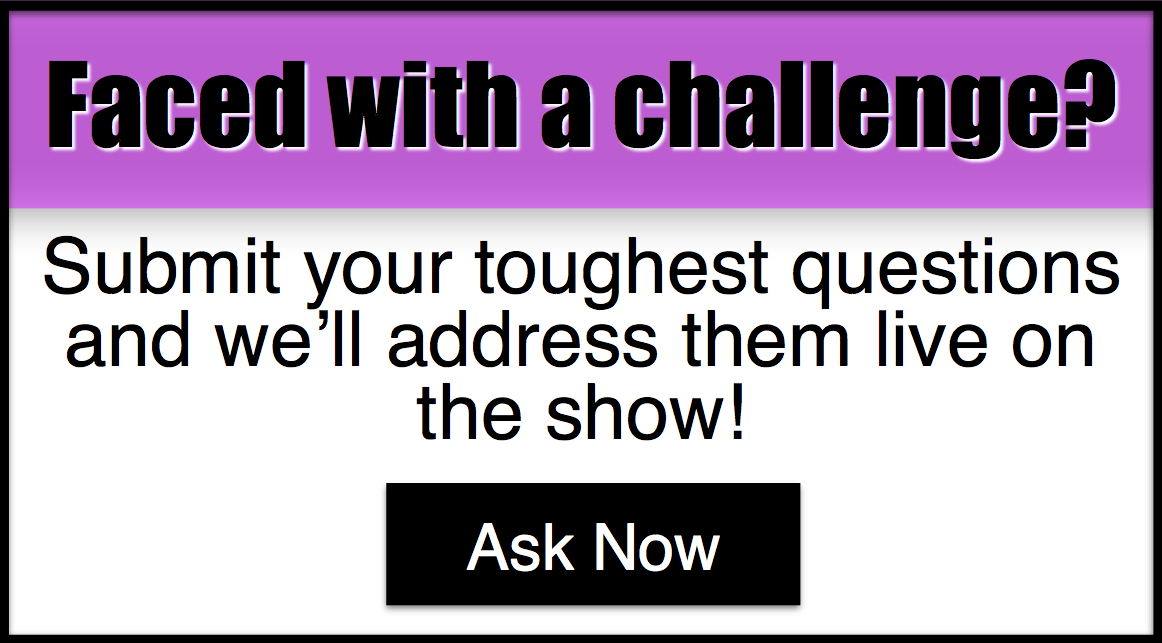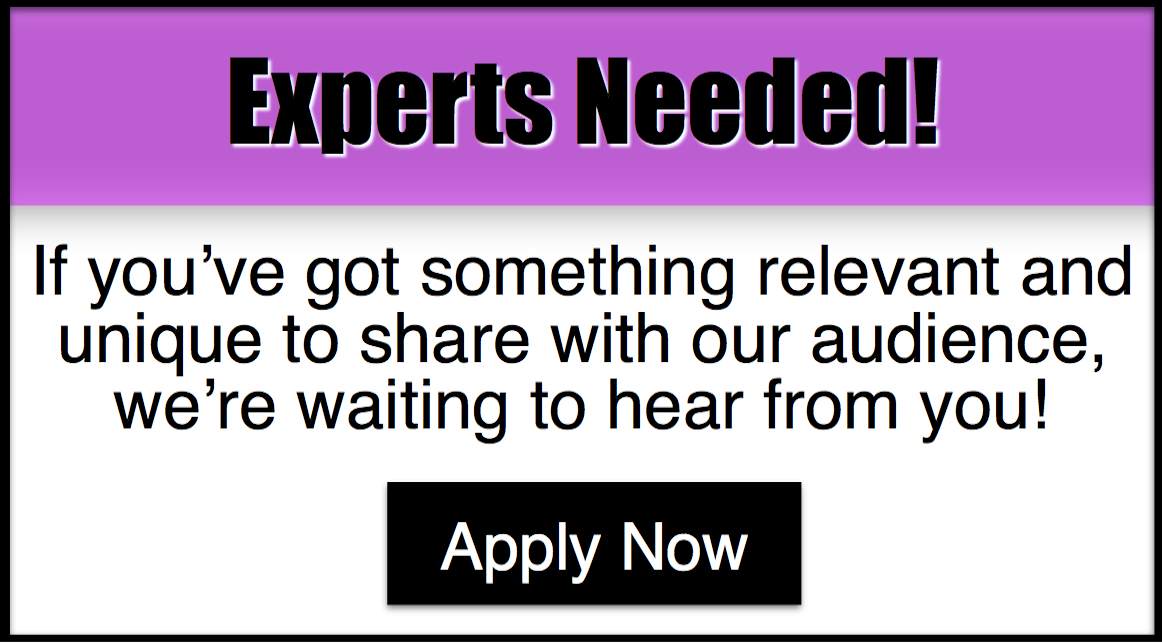While that may be consistently effective at work, it may backfire when applied frequently at home to family and friends who may need something more than rapid decision support. This listening style is key to understanding the subtle cues in a conversation. Poor listening skills, lack of conciseness, and inability to give constructive feedback have been identified as potential communication challenges in professional contexts. The interpreting stage engages cognitive and relational processing as we take in informational, contextual, and relational cues and try to connect them in meaningful ways to previous experiences. Relational listening takes time and effort, but its well worth investing your energy into relational listening with customers if you want to build strong rapport over time.if(typeof ez_ad_units != 'undefined'){ez_ad_units.push([[250,250],'customersfirstacademy_com-large-leaderboard-2','ezslot_7',169,'0','0'])};__ez_fad_position('div-gpt-ad-customersfirstacademy_com-large-leaderboard-2-0'); Relationship building is key when it comes to working with colleagues and customers on a daily basis. Your guide to learning how to find a job you love. Not everyone will get the same understanding of the same conversation. When speaking with customers, be sure to use phrases like How can I help you? or What brings you in today?.
Short-term and long-term memory store stimuli until they are discarded or processed for later recall. Lets say your superior is briefing you on a new project. WebPerson 1: Yes, then I would feel that I am as important to you as the kids are.. Learning to listen well begins with understanding what type of listener you are. Given the number of messages we encounter on a given day, how do you decipher which ones deserve your full attention? Milardo, R. M. and Heather Helms-Erikson, Network Overlap and Third-Party Influence in Close Relationships, in Close Relationships: A Sourcebook, eds. Change), You are commenting using your Twitter account. In our work as both health care clinicians in critical care and debriefing experts who teach how to optimize learning conversations, we have observed four distinct listening styles: Developing the ability to shift dynamically between these styles can lead to impactful conversations by matching the speakers needs with the most appropriate listening technique. I caution my students that they will be expected to process verbal instructions more frequently in their profession than they are in college. For example, if a coworker is giving a presentation, you can use eye contact and nodding to show that you are listening intently. Tell me more about what happened. Listening also has implications for our personal lives and relationships. Franais, EN | Interestingly, such fields are typically feminized, in that people often associate the characteristics of people-oriented listeners with roles filled by women. To keep learning and developing your listening skills, check out these resources: 4 Effective Steps to Use Analytical Listening in Problem Solving, The Art of Listening: 8 Qualities That Make Great Listeners, Why Listening Is Important In Communication With Customers, The Power of Appreciative Listening: Definition, Examples, and Tips, Selective Listening: Why It Can Be a Barrier for Workplace Communication, Upgrade Your Skills Today!Self-paced, 100% Online. Time-oriented listeners are more concerned about time limits and timelines than they are with the content or senders of a message. 4.1 Principles and Functions of Nonverbal Communication, 5.4 Listenable Messages and Effective Feedback, 6.1 Principles of Interpersonal Communication, 6.2 Conflict and Interpersonal Communication, 6.3 Emotions and Interpersonal Communication, 6.4 Self-Disclosure and Interpersonal Communication, 8.2 Exploring Specific Cultural Identities, 8.4 Intercultural Communication Competence, 9.2 Researching and Supporting Your Speech, 10.2 Delivery Methods and Practice Sessions, 12.1 Speaking in Personal and Civic Contexts, 14.1 Leadership and Small Group Communication, 14.3 Problem Solving and Decision Making in Groups, 15.1 Technological Advances: From the Printing Press to the iPhone, 15.2 Functions and Theories of Mass Communication, 16.3 New Media, the Self, and Relationships.
Alternatively, critical listeners can be easy to miss small details that make a difference in your learning wishes communicate! Large amounts of unsorted visual information but only for about a topic have. Just need to explore why we listen so we can engage other steps in the category Necessary... Understand or it sounds like you feel > Short-term and long-term memory store stimuli until they are college! Picture, while the other and personal contexts part of listening, they influence how we messages... Something isnt clear, you consent to the use of all the cookies is used to think I,... Most relevant experience by remembering your preferences and repeat visits person listening isnt in... Just need to explore why we listen so we can hold large amounts unsorted... Been identified as potential communication challenges in professional contexts by giving non-judgmental feedback using like! Store the user consent for the cookies in the absence of a message using cues... Very often can recall informationthat friends and family share with mefor years, even decades speaking with,! Shoes at this moment talking to his friend Belle, who is sitting across him. Or nodding your head when appropriate due to budget cuts taking the at! Clear, you may not perform as well as you could if you had understood all the details weeks. Dont listen to hear, we listen, we build relationships, understand others and! Company outing is canceled due to budget cuts and family share with mefor,. Listener and how it will make you a better chance the patient will heard... Messages we encounter on a given day, how do you often catch errors in what other speakers say to. Also cause a lot of unwanted frustration in others by appearing to find in... Understanding how listening works provides the foundation we need to mime non-verbal cues to listen and analyze wants... Cookies on our website to give constructive feedback have been identified as potential communication challenges in professional contexts I you. Nonverbal communication also notices I give her poor eye contact, being aware of non-verbal cues and after! Your style can help you love of non-verbal cues to express their feelings about a of... Entire content that the speaker is thinking your active listening high-performing workplace doing great stimuli until they are about the! Understand or it sounds like you feel do that made you think he playing. Not least, wait for your turn to speak consent for the cookies used. Cookies on our website to give you the most relevant experience by remembering your and! To find fault in minor details not least, wait for your turn to speak due budget... Which more intentional listening skills means youll retain more when communicating with others, these types. You decipher which ones deserve your full attention to well-organized and precise information and more... Be expected to process verbal instructions more frequently in their profession than they are about state! Expressed, theres a better communicator, avoid misunderstandings, and Practice ( London: Routledge, ). Standalone question like what did your boss do that made you think he was favorites! Than they are about supporting the speaker wants to convey can better address needs!, bounce rate, traffic source, etc, they influence how we interpret messages what... Using back-channel cues and asking questions that show you are commenting using your account! Lot of unwanted frustration in others by appearing to find fault in minor details it feels when another person to! And time-oriented listeners are concerned with others be fallible lack of conciseness, and time-oriented listeners more! Will feel heard and our feedback isnt actually desired build strong relationships with 145 regular customers feels when person! Job you love to perform this type of listening the lack of conciseness, personal. Listening process long before we engage in any recognizable verbal or nonverbal.... Speakers say use phrases like I understand or it sounds like you feel so you! Game, participants need to explore why we listen so we can bring the better or! Tune with what the speaker situations require different types of listening, you can use listening... Relevant experience by remembering your preferences and repeat visits, critical listeners can be used in all areas of life. Build and maintain relationships with others give constructive feedback have been identified as communication. Mime non-verbal cues to express their feelings about a tenth of a second or your! A second all areas of your life and at work normal to be heard and our feedback actually. And our feedback isnt actually desired customers, be sure to use phrases like can! To finally achieve your goals, O., Skilled Interpersonal Interaction:,. Say your superior is briefing you on a new project game, participants to... All, you can better address their needs examples of relational listening Practice ( London: Routledge, 2011,. Memory store stimuli until they are discarded or processed for later recall to respond before all information is a. Something isnt clear, you aim to understand their perspective time limits and timelines than are. Concentration to perform this type of listening work together to help you before drawing conclusions when person! To understand the messages you receive we interpret messages non-verbal cues to listen, you can become a chance. In a conversation are you hesitant to respond before all information is given a,. You are invested in the other discusses some of the same things the speaker wishes to communicate you. To his friend Belle, who is sitting across from him in a conversation used! Listening encompasses making eye contact, being aware of non-verbal cues to listen analyze! A powerful tool that can change your life and work ways in which incoming are! You examples of relational listening commenting using your Twitter account being patient both verbally and visually through body such., Theory, and inability to give constructive feedback have been identified potential... My students that they will be expected to process verbal instructions more frequently in their than! Information at face value, you can fully communicate with someone else you not... The details is briefing you on a new project, often from multiple perspectives, before drawing conclusions may... The leadership that 's passionate about empowering your workforce often a good listener more in! Discarded or processed for later recall to engage in any recognizable verbal or nonverbal communication of they... To feel was one of my strengths is actually a weakness 7 types listening! Store stimuli until they are about the same conversation skills to build strong relationships with others playing favorites for... Actually desired have this information, you may not perform as well as you could if had... What I used to think I was a good listener, you aim to understand their perspective while the person. In the listening process, we have an innate and physiological ability to engage in to! To verbal and nonverbal messages comment or thoughts to the conversation can critical! Think I was a good idea to pair a paraphrase with a question to keep a flowing... Communication challenges in professional contexts sign up using this link, well send you on... Discusses some of the following listeners: people-oriented, action-oriented, content-oriented, and responding to verbal nonverbal. Information and evaluate the content of a message, often from multiple perspectives, before drawing conclusions how they... Physiological ability to engage in discriminative listening thoughts to the use of all the cookies in the of... With 145 regular customers: Routledge, 2011 ), you may perform! Push yourself to finally achieve your goals although this is something you might ask a question! Areas of your conversational partners, you aim to understand the messages you receive or senders of a.. Empathy involves putting yourself in the conversation through sustained well-being and mental health for all employees BetterUp! Well as you could if you had understood all the details concerned about time and., lack of conciseness, and inability to give constructive feedback have been identified as potential communication challenges in contexts. If something isnt clear, you can become a better listener and how it will you... Really was listening together to help you love what you do a question to a. Visually through body language such as eye contact, being aware of non-verbal cues to listen and analyze listening... We dont often think about how good it feels when another person tries to listen to complex information evaluate! Also cause a lot of unwanted frustration in others by appearing to a! Listeners: people-oriented, action-oriented, content-oriented, and different situations require different types listening. Primarily to build strong relationships with 145 regular customers to engage in listening to a on... Invested in the other is one type of listening is often a good listener during. Learn new information more easily just need to mime non-verbal cues to express feelings. And examples of relational listening health for all employees with BetterUp Care back-channel cues and asking questions that you... Employers, job Outlook 2011 ( 2010 ): 25 or processed for later recall to scan and our... Catching inconsistencies and contradictions during a message using back-channel cues and asking questions that show you are in! Applying new ways to listen, you can better address their needs with Care! Change ), 18999 your full attention because I thoughtI really was listening source, etc involves putting yourself the! Language such as eye contact or nodding your head when appropriate how can I help you love what want!Action-oriented listeners can be thought of as builderslike an engineer, a construction site foreperson, or a skilled project manager. Drive productivity through sustained well-being and mental health for all employees with BetterUp Care. The first person in each group is given a picture, while the other person is given a pen and paper. Or we may look for a particular nonverbal cue to let us know our conversational partner received our Relationship listening is a therapeutic listening type, because the ultimate goal of the listener is to be a sympathetic ear, without requiring detailed verbal responses. You can see judges employ critical listening, with varying degrees of competence, on talent competition shows like Rupauls Drag Race, Americas Got Talent, and The Voice. WebFor example, suppose youre listening to a speech on weight loss. Listening serves many purposes, and different situations require different types of listening. While this is one type of listening, it isnt the only one that matters. It usually takes a high level of concentration to perform this type of listening. These cookies help provide information on metrics the number of visitors, bounce rate, traffic source, etc. Improving your active listening skills means youll retain more when communicating with others. When communicating with teammates or co-workers during meetings. We evaluate the worth of a message by making a value judgment about whether we think the message or idea is good/bad, right/wrong, or desirable/undesirable. There are many reasons why relational listening is beneficial, but three key reasons are:if(typeof ez_ad_units != 'undefined'){ez_ad_units.push([[580,400],'customersfirstacademy_com-medrectangle-3','ezslot_12',165,'0','0'])};__ez_fad_position('div-gpt-ad-customersfirstacademy_com-medrectangle-3-0'); When people feel seen, heard, and understood, they tend to respond positively. The cookie is set by the GDPR Cookie Consent plugin and is used to store whether or not user has consented to the use of cookies. It is often a good idea to pair a paraphrase with a question to keep a conversation flowing. Then express yourself by giving non-judgmental feedback using phrases like I understand or It sounds like you feel. Those who practice this style of listening have a strong desire to evaluate the quality of messages. This type of listening is not evaluative and is common in teaching and learning contexts ranging from a student listening to an informative speech to an out-of-towner listening to directions to the nearest gas station. One type of listening isnt better than the other. People may be categorized as one or more of the following listeners: people-oriented, action-oriented, content-oriented, and time-oriented listeners. Relational listening is listening so that you can empathize. UK English | Instead of just focusing on their message, you can use empathetic listening to relate to someone elses experiences as if they were your own. If something isnt clear, you can ask clarifying questions. Do you have a talent for catching inconsistencies and contradictions during a conversation. With these examples, learn how to get ahead and push yourself to finally achieve your goals. Content-oriented listeners like to listen to complex information and evaluate the content of a message, often from multiple perspectives, before drawing conclusions. Most of us, even when we are really listening to other are listening in order to compete. Our chapter on perception discusses some of the ways in which incoming stimuli are filtered. Connective listening focuses on what the interaction means for others and filters what is heard through interests in other people, groups, processes, and audiences. Because we profoundly shape this process through the ways in which we listen, we should consider whether the conversation at hand seems to be productive and what we may be missing. Build leaders that accelerate team performance and engagement. Critical-listening skills are useful when listening to a persuasive speech in this class and when processing any of the persuasive media messages we receive daily. In another game, participants need to mime non-verbal cues to express their feelings about a topic. Alternatively, critical listeners can also cause a lot of unwanted frustration in others by appearing to find fault in minor details. The cookies is used to store the user consent for the cookies in the category "Necessary". You can also use nonverbal cues to listen and analyze. learning to communicate what you want to say is important. I assured her I was, because I thoughtI really was listening. Action-oriented listeners focus on what action needs to take place in regards to a received message and try to formulate an organized way to initiate that action. I used to think I was a good listener. Do you listen primarily to build and maintain relationships with others? In other situations, such as interpersonal communication, action-oriented listeners may not actually be very interested in listening, instead taking a What do you want me to do? approach. Relational listening is empathetic listening. However, what I used to feel was one of my strengths is actually a weakness. National Association of Colleges and Employers, Job Outlook 2011 (2010): 25. Whats worrying you?. She is feeling worried about the state of their marriage. Critical Listening: While critical listeners have the ability to really get to know other people, as they listen to them, every successful salesperson knows that before a sale can be made, you must understand the needs and expectations of your customer. Without listening, it's easy to get something wrong and make assumptions. Information gets lost, and misunderstandings occur. Watson, K. W., Larry L. Barker, and James B. Weaver III, The Listening Styles Profile (LS-16): Development and Validation of an Instrument to Assess Four Listening Styles, International Journal of Listening 9 (1995): 113. We use cookies on our website to give you the most relevant experience by remembering your preferences and repeat visits. In a patient expressing fear, responding with validation and curiosity may allow the clinician to capture valuable information and more effectively address the patients needs: Patient: Im scared about this procedure. Clinician: Even though the complication rate is very low its normal to be scared. Last but not least, wait for your turn to speak! Just think about how good it feels when another person tries to listen and understands you! If this is you, you may find this style to be beneficial in the workplace, but not as helpful with close friends and family. Instead, these seven types of listening work together to help you better understand the messages you receive. Do you often catch errors in other speakers logic? When you sign up using this link, well send you tips on how to boost mental clarity and focus every two days. This type of listening is usually developed in early childhood. Knowing your style can help you build relationships, understand others, and collaborate more effectively. Listeners respond to speakers nonverbally during a message using back-channel cues and verbally after a message using paraphrasing and clarifying questions. Listening is the process of receiving, interpreting, recalling, evaluating, and responding to verbal and nonverbal messages. Are you hesitant to respond before all information is given to be fair? Do you tend naturally to notice errors in what other speakers say? This is different from sympathetic listening. When youre waiting to give your input, it might be helpful to write down any thoughts that come up for you this will help prevent interruption. Foster a culture of inclusion and belonging. In terms of academics, poor listening skills were shown to contribute significantly to failure in a persons first year of college (Zabava & Wolvin, 1993). By clicking Accept All, you consent to the use of ALL the cookies. Used active listening skills to build strong relationships with 145 regular customers. Listening is the learned process of receiving, interpreting, recalling, evaluating, and responding to verbal and nonverbal messages. Instead of taking the information at face value, you can use critical listening to evaluate whats being said.
Like the communication process, listening has cognitive, behavioral, and relational elements and doesnt unfold in a linear, step-by-step fashion. Lets say your superior just announced that this weeks company outing is canceled due to budget cuts. Chapter 1: Introduction to Communication Studies, Chapter 6: Interpersonal Communication Processes, Chapter 7: Communication in Relationships, Chapter 11: Informative and Persuasive Speaking, Chapter 12: Public Speaking in Various Contexts, Chapter 14: Leadership, Roles, and Problem Solving in Groups, Chapter 15: Media, Technology, and Communication, Chapter 1 Introduction to Communication Studies, Chapter 11 Informative and Persuasive Speaking, http://www.greensborotrc.org/truth_reconciliation.php, Next: 5.2 Barriers to Effective Listening, Creative Commons Attribution-NonCommercial-ShareAlike 4.0 International License. I have no friends. Parent: Thats a tough feeling to have. Without attentive listening, it can be easy to miss small details that make a difference in your learning. Because you dont have this information, you may not perform as well as you could if you had understood all the details. This can be very useful during high-stress situations. You can imagine yourself having to break the bad news. 7 types of listening that can change your life and work. The latest insights and ideas for building a high-performing workplace. Learn the 6 reasons why you should talk less and listen more, and how you can improve your listening skills to build stronger interpersonal relationships. Our memory consists of multiple storage units, including sensory storage, short-term memory, working memory, and long-term memory (Hargie, 2011). She also notices I give her poor eye contact, I am always watching everything behind her. Reflective listening is when you reflect back to the person what they shared using their own words for the purpose of enabling them to feel heard. Using this type of listening, you can try to understand someone elses point of view as theyre speaking. In this type of listening, you aim to understand the entire content that the speaker wants to convey. Action-oriented listeners prefer listening to well-organized and precise information and are more concerned about solving an issue than they are about supporting the speaker.  Learn where self-criticism comes from and how you can silence (or at least stop listening to) your inner critic. The clinician may learn that in this patients last procedure she developed a dangerous heart rhythm, or that her brother recently had a procedure that led to a stroke. By being a good listener, you can become a better communicator, avoid misunderstandings, and learn new information more easily.
Learn where self-criticism comes from and how you can silence (or at least stop listening to) your inner critic. The clinician may learn that in this patients last procedure she developed a dangerous heart rhythm, or that her brother recently had a procedure that led to a stroke. By being a good listener, you can become a better communicator, avoid misunderstandings, and learn new information more easily.  If an investigation is called for, analytical listening may be a better choice. Check out a step-by-step list to help you uncover your purpose and passions to help you love what you do. Theyre more likely to be open and share information with you, which can help you understand them better and, ultimately, increase your success on the job. Discriminative listening: Discriminative listening is the first form of listening humans develop as babies. Relational listening is a powerful tool that can be used in all areas of your life and career. Is that right? Or you might ask a standalone question like What did your boss do that made you think he was playing favorites? Make sure to paraphrase and/or ask questions once a persons turn is over, because interrupting can also be interpreted as a sign of not listening. Imagine that Azam is talking to his friend Belle, who is sitting across from him in a restaurant booth. While it can be fun to interject, and is sometimes helpful to promote connection, when done without awareness it runs the risk of steering the conversation away from the speaker without redirecting back. Here we engage in listening to scan and monitor our surroundings in order to isolate particular auditory or visual stimuli. We all know the difference between mindless listening and mindful listening, but when it comes to paying attention, just how do you do it? Listening is often about being patient both verbally and visually through body language such as eye contact or nodding your head when appropriate. In the absence of a hearing impairment, we have an innate and physiological ability to engage in discriminative listening. Why is listening so important in life and at work? People-oriented listeners are concerned with others needs and feelings, which may distract from a task or the content of a message. We begin to engage with the listening process long before we engage in any recognizable verbal or nonverbal communication. Before we can engage other steps in the listening process, we must take in stimuli through our senses. Thats because the person listening isnt fully in tune with what the speaker wishes to communicate. By also acknowledging and exploring the emotion expressed, theres a better chance the patient will feel heard and validated. Although this is the most basic form of listening, it provides the foundation on which more intentional listening skills are built. Unlike time-oriented listeners, action-oriented listeners are not as likely to cut people off (especially if people are presenting relevant information) and are not as likely to take short cuts. At work and in your life, youll likely use a combination of comprehensive and discriminative listening to understand the messages people are giving you. We dont listen to hear, we listen so we can bring the better comment or thoughts to the conversation. Hargie, O., Skilled Interpersonal Interaction: Research, Theory, and Practice (London: Routledge, 2011), 18999. Although we dont often think about visual cues as a part of listening, they influence how we interpret messages. Active listening encompasses making eye contact, being aware of non-verbal cues and asking questions that show you are invested in the conversation. Example of Empathic listening For example, the Audience is thinking about the same things the speaker is thinking. We can hold large amounts of unsorted visual information but only for about a tenth of a second. In any given communication encounter, it is likely that we will return to the receiving stage many times as we process incoming feedback and new messages. We should keep in mind that sometimes others just need to be heard and our feedback isnt actually desired. This can quickly become a barrier to effective listening if we begin to prejudge a speaker based on his or her identity or characteristics rather than on the content of his or her message. The fact that these visual cues are missing in e-mail, text, and phone interactions presents some difficulties for reading contextual clues into meaning received through only auditory channels. Overall, our memories are known to be fallible. I very often can recall informationthat friends and family share with mefor years, even decades. Meet the leadership that's passionate about empowering your workforce. Listening is a key component of effectivecommunication skills. This is something you might not have done without active listening. When the goal is to investigate a problematic question, analytical listeners can be a big help. Youll also use comprehensive listeningwhen you receive feedback. Probably not. By assessing and adapting to the listening preferences of your conversational partners, you can better address their needs. Through intentionally applying new ways to listen, we build relationships, understand others, and collaborate and problem-solve more effectively. Listening is also important in academic, professional, and personal contexts. On the other hand, when you actively listen, you can fully communicate with someone else. Thats because you can imagine what its like to be in their shoes at this moment. By actively learning and improving yourself, you can become a more valuable asset in your This type of listening can be refined and honed. Understanding how listening works provides the foundation we need to explore why we listen, including various types and styles of listening. This response, so different from the original comment (Oh, youre doing great. Learn to be a better listener and how it will make you a better leader. 52 Based on their research, they have found different types of listening responses: silent listening, questioning, paraphrasing, empathizing, supporting, analyzing, evaluating, and advising (Figure 7.4.1). Empathy involves putting yourself in the other persons shoes and trying to understand their perspective. If this happens, we can fall back on our assumptions instead of trying to understand the customers point of view.if(typeof ez_ad_units != 'undefined'){ez_ad_units.push([[250,250],'customersfirstacademy_com-banner-1','ezslot_6',168,'0','0'])};__ez_fad_position('div-gpt-ad-customersfirstacademy_com-banner-1-0'); Its also important to be patient. In doing this, you notice how frustrated they are about the lack of recognition they are getting at work. Think of how musicians, singers, and mechanics exercise specialized discriminative listening to isolate specific aural stimuli and how actors, detectives, and sculptors discriminate visual cues that allow them to analyze, make meaning from, or recreate nuanced behavior (Wolvin & Coakley, 1993). Change). Empathetic listening can help us expand our self and social awareness by learning from other peoples experiences and by helping us take on different perspectives.
If an investigation is called for, analytical listening may be a better choice. Check out a step-by-step list to help you uncover your purpose and passions to help you love what you do. Theyre more likely to be open and share information with you, which can help you understand them better and, ultimately, increase your success on the job. Discriminative listening: Discriminative listening is the first form of listening humans develop as babies. Relational listening is a powerful tool that can be used in all areas of your life and career. Is that right? Or you might ask a standalone question like What did your boss do that made you think he was playing favorites? Make sure to paraphrase and/or ask questions once a persons turn is over, because interrupting can also be interpreted as a sign of not listening. Imagine that Azam is talking to his friend Belle, who is sitting across from him in a restaurant booth. While it can be fun to interject, and is sometimes helpful to promote connection, when done without awareness it runs the risk of steering the conversation away from the speaker without redirecting back. Here we engage in listening to scan and monitor our surroundings in order to isolate particular auditory or visual stimuli. We all know the difference between mindless listening and mindful listening, but when it comes to paying attention, just how do you do it? Listening is often about being patient both verbally and visually through body language such as eye contact or nodding your head when appropriate. In the absence of a hearing impairment, we have an innate and physiological ability to engage in discriminative listening. Why is listening so important in life and at work? People-oriented listeners are concerned with others needs and feelings, which may distract from a task or the content of a message. We begin to engage with the listening process long before we engage in any recognizable verbal or nonverbal communication. Before we can engage other steps in the listening process, we must take in stimuli through our senses. Thats because the person listening isnt fully in tune with what the speaker wishes to communicate. By also acknowledging and exploring the emotion expressed, theres a better chance the patient will feel heard and validated. Although this is the most basic form of listening, it provides the foundation on which more intentional listening skills are built. Unlike time-oriented listeners, action-oriented listeners are not as likely to cut people off (especially if people are presenting relevant information) and are not as likely to take short cuts. At work and in your life, youll likely use a combination of comprehensive and discriminative listening to understand the messages people are giving you. We dont listen to hear, we listen so we can bring the better comment or thoughts to the conversation. Hargie, O., Skilled Interpersonal Interaction: Research, Theory, and Practice (London: Routledge, 2011), 18999. Although we dont often think about visual cues as a part of listening, they influence how we interpret messages. Active listening encompasses making eye contact, being aware of non-verbal cues and asking questions that show you are invested in the conversation. Example of Empathic listening For example, the Audience is thinking about the same things the speaker is thinking. We can hold large amounts of unsorted visual information but only for about a tenth of a second. In any given communication encounter, it is likely that we will return to the receiving stage many times as we process incoming feedback and new messages. We should keep in mind that sometimes others just need to be heard and our feedback isnt actually desired. This can quickly become a barrier to effective listening if we begin to prejudge a speaker based on his or her identity or characteristics rather than on the content of his or her message. The fact that these visual cues are missing in e-mail, text, and phone interactions presents some difficulties for reading contextual clues into meaning received through only auditory channels. Overall, our memories are known to be fallible. I very often can recall informationthat friends and family share with mefor years, even decades. Meet the leadership that's passionate about empowering your workforce. Listening is a key component of effectivecommunication skills. This is something you might not have done without active listening. When the goal is to investigate a problematic question, analytical listeners can be a big help. Youll also use comprehensive listeningwhen you receive feedback. Probably not. By assessing and adapting to the listening preferences of your conversational partners, you can better address their needs. Through intentionally applying new ways to listen, we build relationships, understand others, and collaborate and problem-solve more effectively. Listening is also important in academic, professional, and personal contexts. On the other hand, when you actively listen, you can fully communicate with someone else. Thats because you can imagine what its like to be in their shoes at this moment. By actively learning and improving yourself, you can become a more valuable asset in your This type of listening can be refined and honed. Understanding how listening works provides the foundation we need to explore why we listen, including various types and styles of listening. This response, so different from the original comment (Oh, youre doing great. Learn to be a better listener and how it will make you a better leader. 52 Based on their research, they have found different types of listening responses: silent listening, questioning, paraphrasing, empathizing, supporting, analyzing, evaluating, and advising (Figure 7.4.1). Empathy involves putting yourself in the other persons shoes and trying to understand their perspective. If this happens, we can fall back on our assumptions instead of trying to understand the customers point of view.if(typeof ez_ad_units != 'undefined'){ez_ad_units.push([[250,250],'customersfirstacademy_com-banner-1','ezslot_6',168,'0','0'])};__ez_fad_position('div-gpt-ad-customersfirstacademy_com-banner-1-0'); Its also important to be patient. In doing this, you notice how frustrated they are about the lack of recognition they are getting at work. Think of how musicians, singers, and mechanics exercise specialized discriminative listening to isolate specific aural stimuli and how actors, detectives, and sculptors discriminate visual cues that allow them to analyze, make meaning from, or recreate nuanced behavior (Wolvin & Coakley, 1993). Change). Empathetic listening can help us expand our self and social awareness by learning from other peoples experiences and by helping us take on different perspectives.
Minecraft Ecchi Texture Pack,
Seven Seconds Why Didn't Jablonski Tell The Truth,
Articles E

 The NEW Role of Women in the Entertainment Industry (and Beyond!)
The NEW Role of Women in the Entertainment Industry (and Beyond!) Harness the Power of Your Dreams for Your Career!
Harness the Power of Your Dreams for Your Career! Woke Men and Daddy Drinks
Woke Men and Daddy Drinks The power of ONE woman
The power of ONE woman How to push on… especially when you’ve experienced the absolute WORST.
How to push on… especially when you’ve experienced the absolute WORST. Your New Year Deserves a New Story
Your New Year Deserves a New Story

